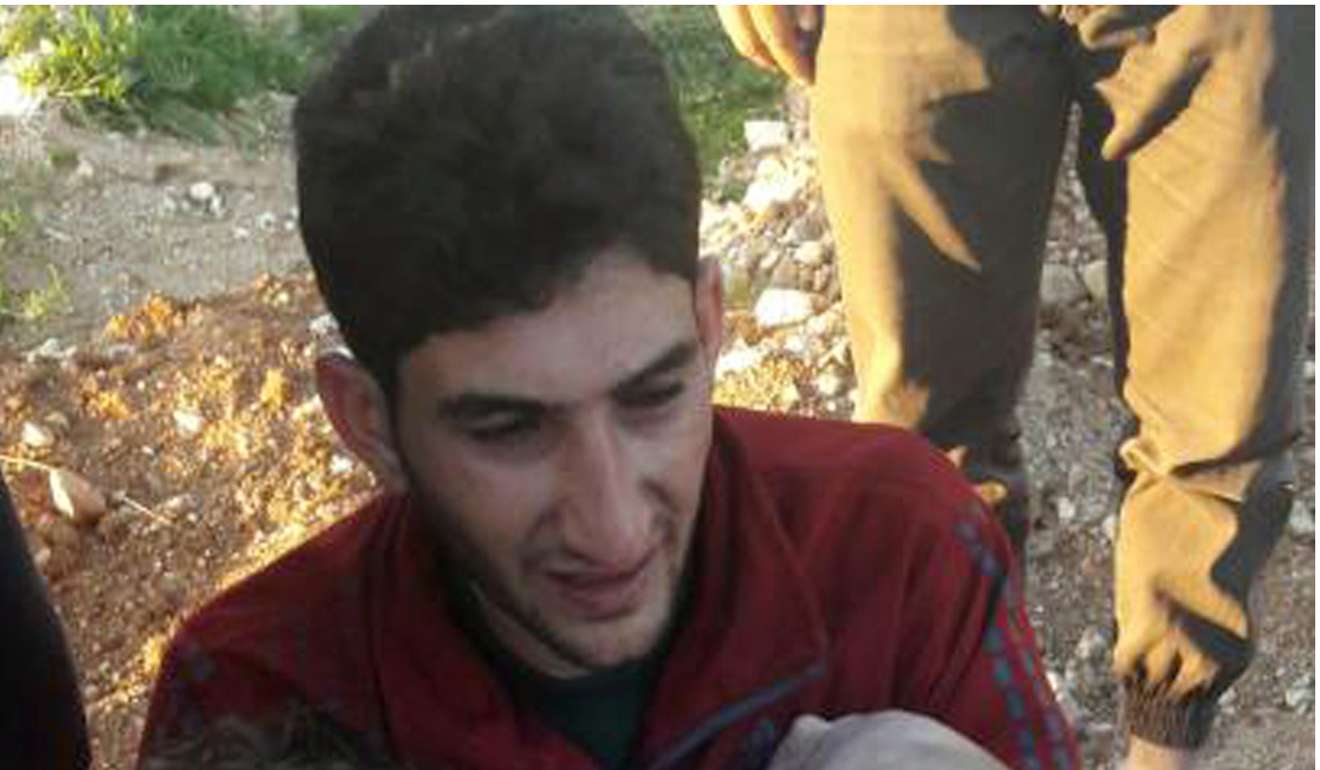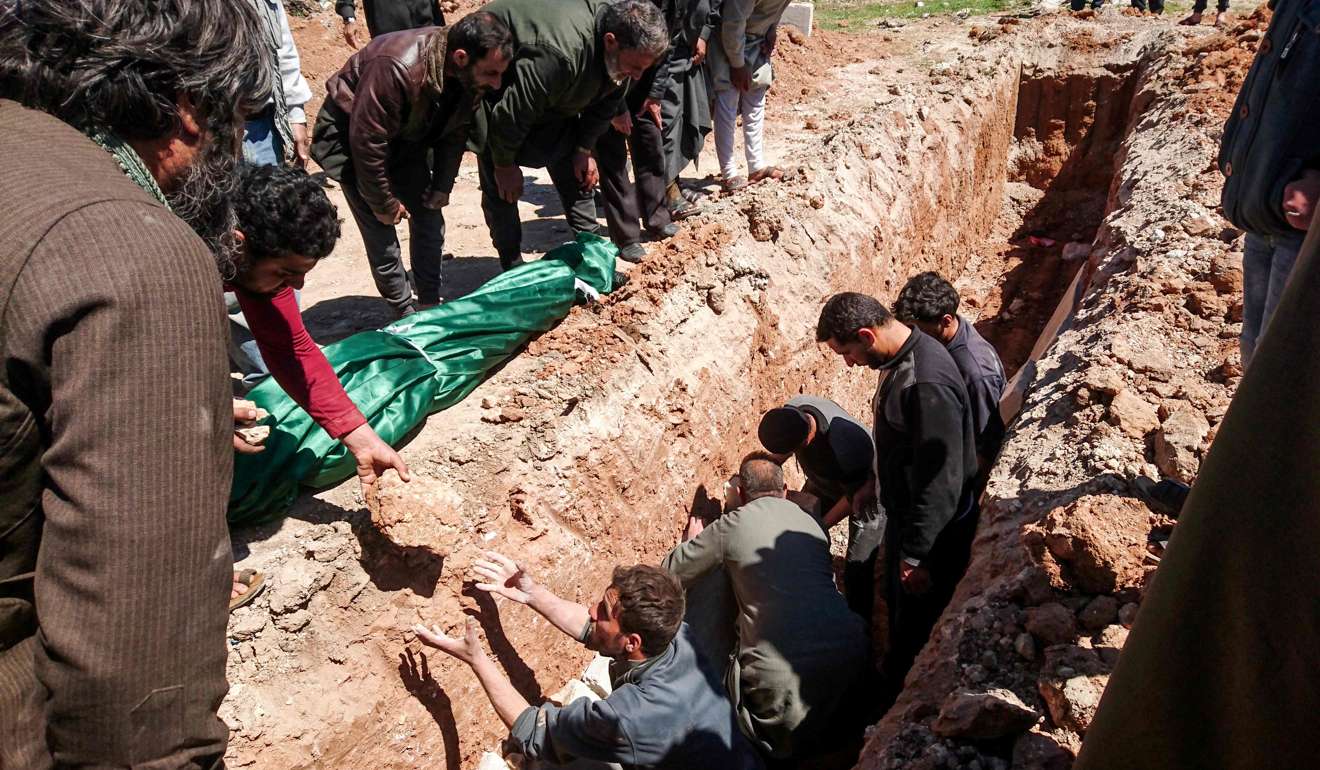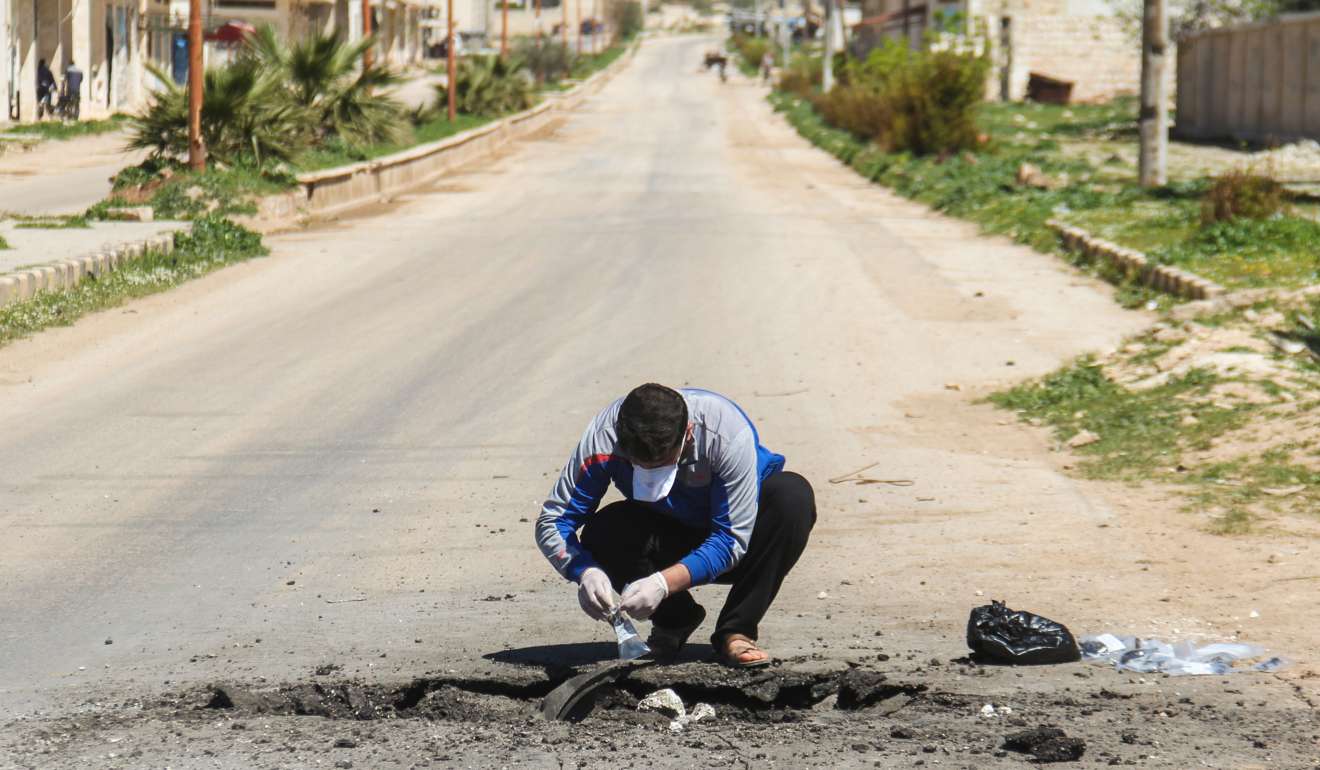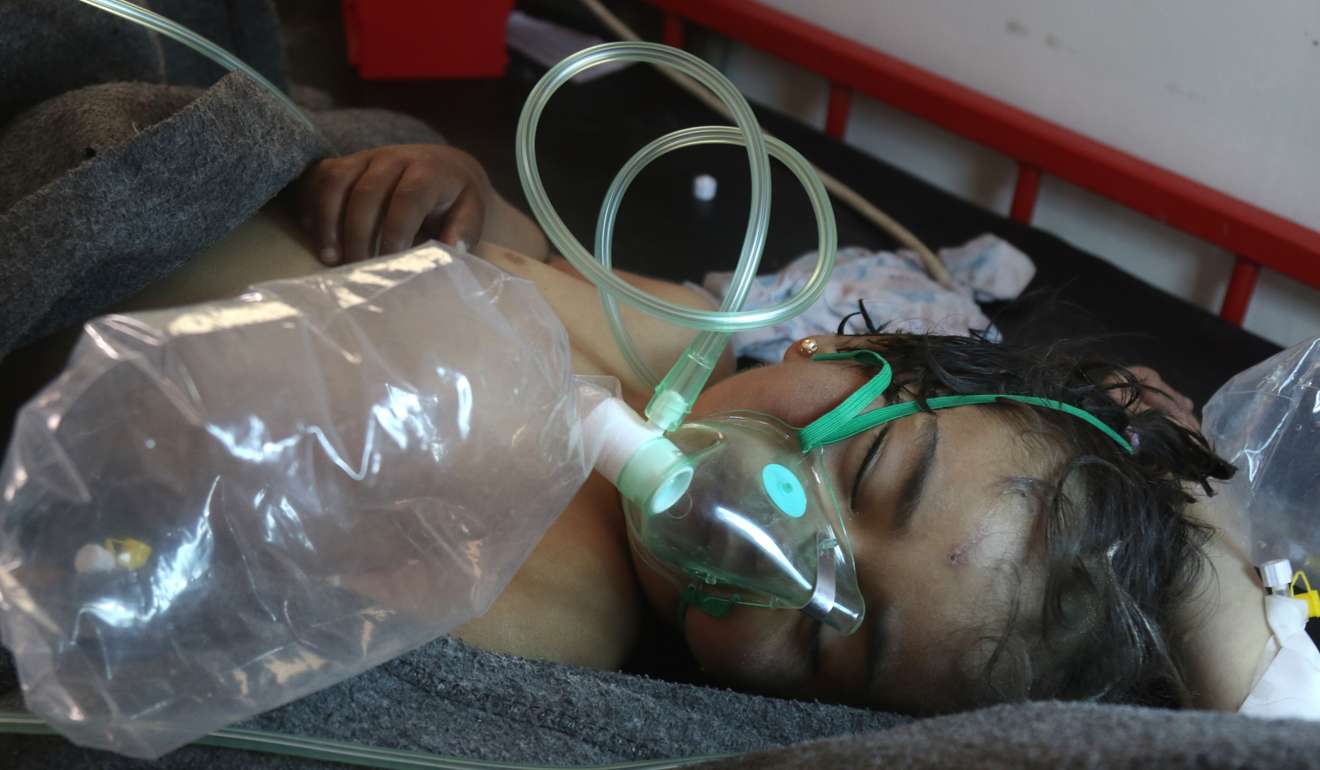
‘I couldn’t save anyone. They’re all dead now’: Syria gas massacre claimed 22 members of one family
The grief-stricken father cradled his nine-month-old twins, Aya and Ahmed, each in the crook of an arm. Stroking their hair, he choked back tears, mumbling, “Say goodbye, baby, say goodbye” to their lifeless bodies.
Then Abdel Hameed Alyousef took them to a mass grave where 22 members of his family were being buried. Each branch of the clan got its own trench.
More than 80 people, including at least 30 children and 20 women, were killed in the chemical attack on the Syrian town of Khan Sheikhoun early Tuesday, and the toll could still rise. The Alyousef family, one of the town’s main clans, was hardest hit.

“Ammar, Aya, Mohammed, Ahmad, I love you my birds. Really they were like birds. Aunt Sana, Uncle Yasser, Abdul-Kareem, please hear me,” Fadl said, choking back tears as she recalled how she said farewell to her relatives in the pile.
“I saw them. They were dead. All are dead now.”
The air became very heavy. There was no bad smell. But the air was so heavy to breathe
The US and other Western countries accused President Bashar al-Assad of orchestrating
the attack, but Syria and its main backer, Russia, have denied it. Syria’s armed forces “did not and will not” use chemical weapons, even against jihadist groups, Foreign Minister Walid Muallem said yesterday.
“I stress to you once again: the Syrian army has not, did not and will not use this kind of weapons – not just against our own people, but even against the terrorists that attack our civilians with their mortar rounds,” he said.
Despite world condemnation, bringing justice is difficult in the absence of independent investigation of Syria’s chemical arsenal, which the government insists it has destroyed.
“My heart is broken. Everything was terrible. Everyone was crying and couldn’t breathe,” Fadl said on Wednesday. “We had many circumstances in Syria and we had many difficult situations. This is the most difficult and most harmful situation I ever had.”

The high number of casualties, as well as the grave symptoms including convulsions, constricted pupils and vomiting, point to a complex chemical gas, possibly sarin.
Witnesses say four rockets hit around 6.30am Tuesday, smashing a crater in the ground, but causing minimal structural damage. It quickly became clear this was not a conventional attack.
Fadl remembered her panic when the rockets woke her.

The Alyousefs brought their dead to a family member’s home that was outside the worst attack area. The courtyard was turned into a makeshift morgue where surviving relatives tried for hours to resuscitate loved ones already dead.
We are afraid to enter homes sometimes lest we find more people dead
That’s when Fadl finally collapsed, she said, only to wake up in a medical centre.
While Fadl recovers along with her son at her parents’ home in a town north of Khan Sheikoun, her husband is still looking for survivors from his extended family.
Alaa Alyousef said not all homes have been searched for survivors yet.
“We are still in shock, a big shock. Our family is devastated,” the 27-year-old said. “Many are still missing. We are afraid to enter homes sometimes lest we find more people dead.”
On Tuesday, he and other family members buried the clan’s dead in the mass grave.

When the airstrikes hit, he was with the twins. “I carried them outside the house with their mother,” the 29-year-old shop owner said. “They were conscious at first, but 10 minutes later we could smell the odour.”
The twins and his wife, Dalal Ahmed, fell sick.
He brought them to paramedics and, thinking they would be OK, went to look for the rest of his family. He found the bodies of two of his brothers, two nephews and a niece, as well as neighbours and friends. “I couldn’t save anyone. They’re all dead now,” he said.
It was only later that his relatives could bring themselves to tell him that his children and wife had also died.
“Abdel Hameed is in very bad shape,” said his cousin, Alaa Alyousef. He’s being treated for exposure to the toxin, “but he’s especially broken down over his massive loss.”
Additional reporting by Agence France-Presse

